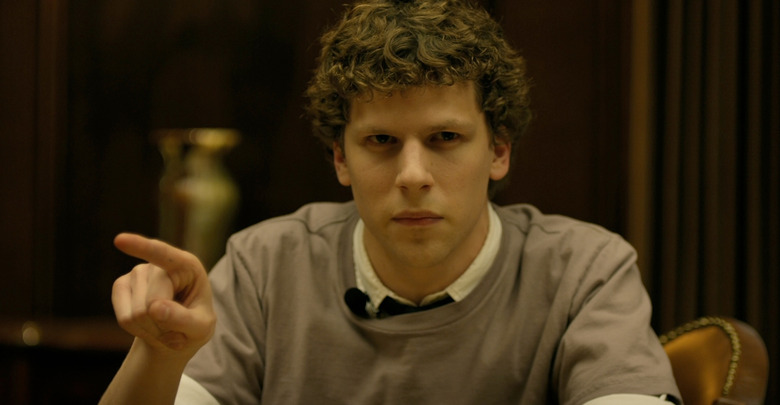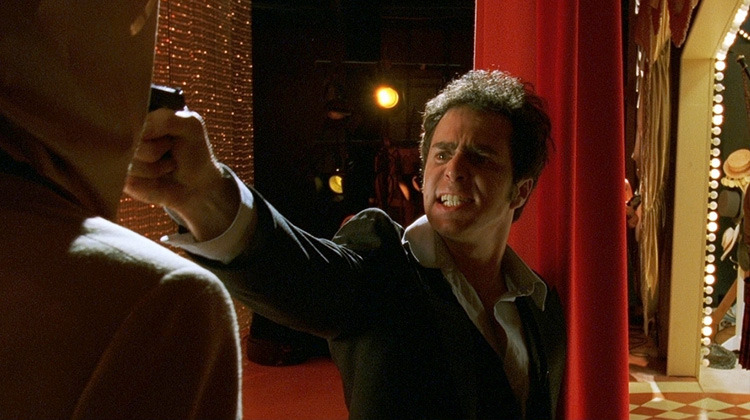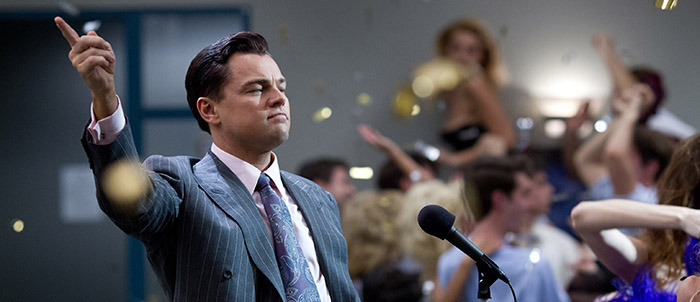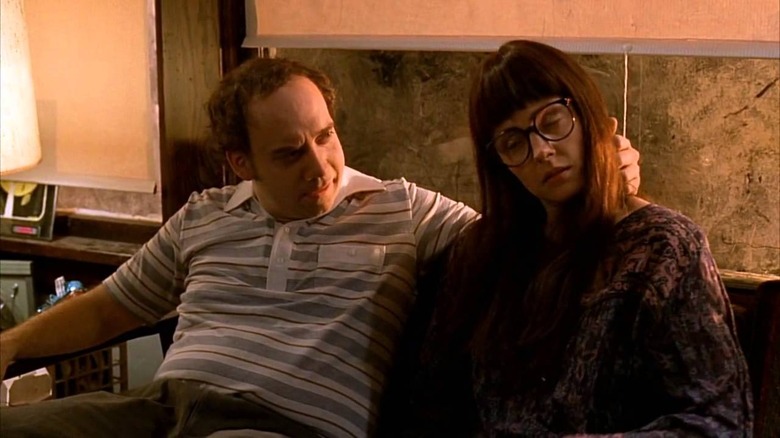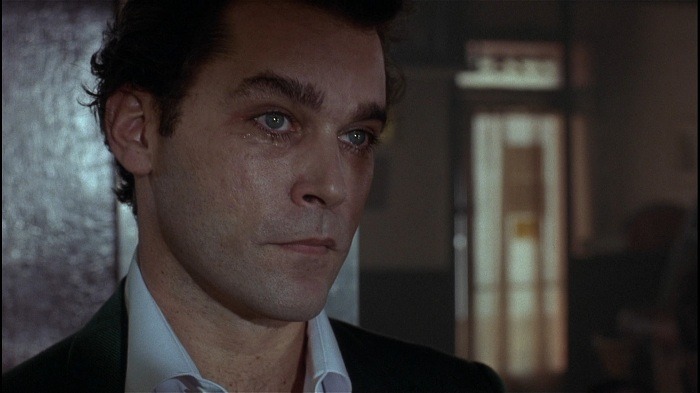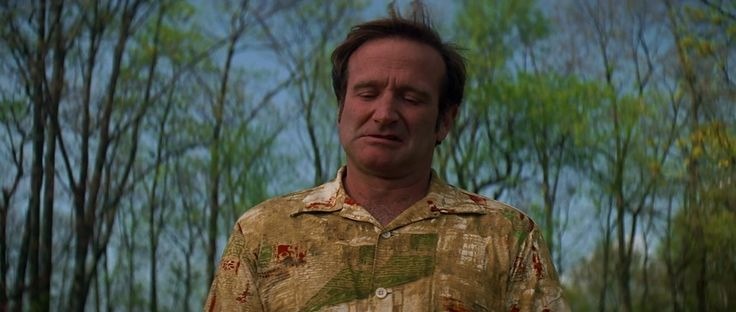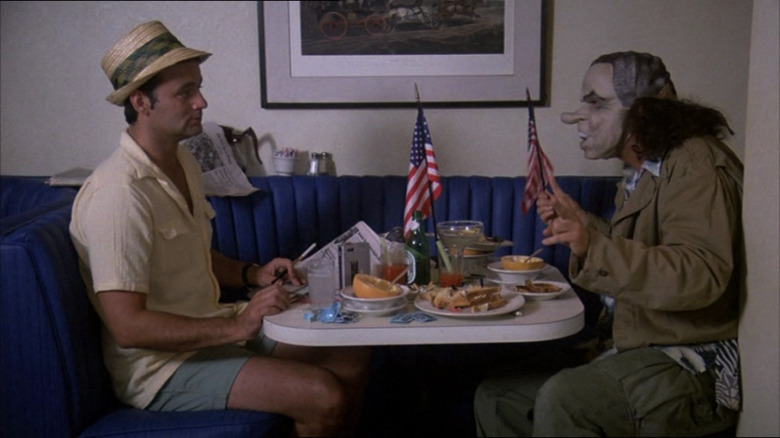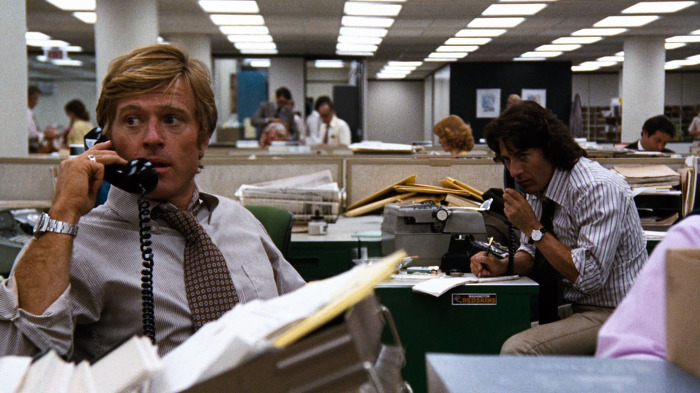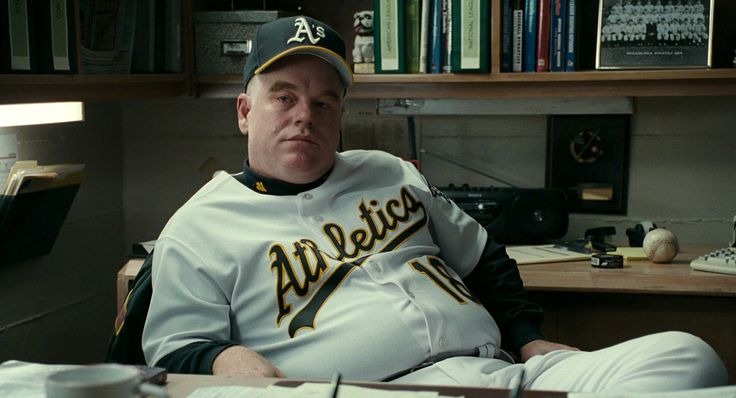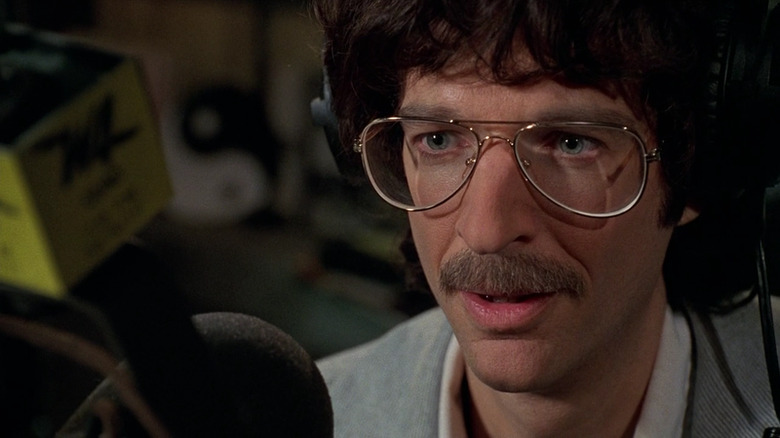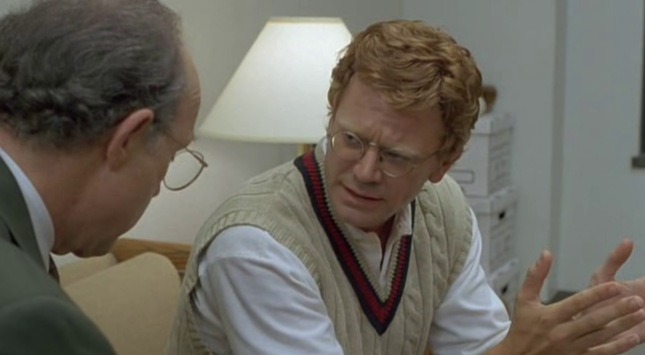11 Biopic Reactions From Their Real-Life Subjects
It can't be easy watching a movie about your life. Some people get extremely agitated when pivotal parts of their favorite book aren't in the film adaptation, so imagine what'd be like for those people seeing an unfaithful or highly dramatized version of their own life shown on the big screen. The movie, especially if it's popular, is going to be associated with their image forever. Not all audience members leave a theater saying, "I bet that one scene was dramatized for storytelling purposes," so, if the portrait of its subject is unflattering or inaccurate, that can't feel great for the subject.
Many folks featured in bio movies have felt left the theater not feeling so hot on how they've been depicted, while others have been pleased with the results. Learn about a few biopic reactions from the subjects after the jump.
When making a bio film, there's a responsibility to both the real-life figures, and more importantly, telling a compelling story. Sometimes the two responsibilities clash. There are plenty of fantastic bio films that departed from the facts, while there's no shortage of bad bio movies that didn't depart enough. Since it's awards season, we're seeing a handful of movies from the genre, if you can call it that, and the best one thus far is Steve Jobs. Screenwriter Aaron Sorkin took a lot of liberties with Jobs' real-life story, and for the better. The same can be said for Sorkin's other film, The Social Network, which Mark Zuckerberg wasn't pleased with...
Mark Zuckerberg (The Social Network)
Zuckerberg was never shy about his thoughts on David Fincher's film. "It's interesting what stuff they focused on getting right," the Facebook CEO said. "Like every single fleece and shirt I had in that movie is actually a shirt or fleece that I own. You know, so there's all this stuff that they got wrong, and a bunch of random details that they got right. The thing that I think is actually most thematically interesting that they got wrong is — the whole framing of the movie, kind of the way that it starts is, I'm with this girl who doesn't exist in real life, who dumps me, which has happened to me in real life, a lot — and basically to frame it as if the whole reason for making Facebook and building something was because I wanted to get girls or wanted to get into some sort of social institution. And the reality for people who know me is that I've actually been dating the same girl since before I started Facebook, so obviously that's not a part of it. But I think it's such a big disconnect from the way people who make movies think about what we do in Silicon Valley — building stuff. They just can't wrap their head around the idea that someone might build something because they like building things."
Chuck Barris (Confessions of a Dangerous Mind)
The Gong Show host's life as a CIA hitman has always been called into question. Whether it's true or not, his stranger-than-fiction story made for actor George Clooney's excellent directorial debut. "Once Clooney became the director, he said to me — which I thought was terrific – that if there was anything I didn't like, or anything I didn't want, to tell him, and then he'd do his best to change it or get it out," Barris said. "One of the things was that [screenwriter] Charlie [Kaufman] had me as a drug addict. In the original script, I was a druggie, and that's something I never, ever did. I had this tremendous horror about drugs. I was a big extremist: If I chewed a pack of gum, I chewed 20 packs. I knew that if I ever touched drugs, I'd be a junkie, and I had a public company to run, with a bunch of shows on the air. There was too much to lose to fool around with something like that. So it was a perception of myself that I did not want, and that was taken out. I didn't mind if it looked like I drank or I smoked. I didn't care about that."
Barris minded the drugs and the drinking, not so much the other fictitious (and odder parts) of the film. "There were a few other little things that kind of escaped my notice that made it into the movie," he continued. "My mother never dressed me like a girl. That's a Kaufman-esque thing. My father wasn't a serial killer. That's another Kaufman-esque thing. I would have mentioned that to George, but I didn't, and I don't think it's the end of the world. Those are some of the things."
Clooney would shy away from asking Barris what was true and what wasn't, as he thought the truth of the story was irrelevant.
Jordan Belfort (The Wolf of Wall Street)
"I was blown away," Belfort revealed to The Hollywood Reporter. "The way he was able to capture my energy, especially during the sales scenes and the speeches. He didn't try to duplicate my voice as much as my mannerisms, my tonalities and my gestures... The drug use and the stuff with the hookers and the sales assistants and the sex in the office... that stuff is really, really accurate. In some respects, my life was even worse than that. Though I'd say I did more quaaludes than cocaine."
How could Martin Scorsese get such a detail wrong? Talk about a real lack of attention-to-detail...
"It's laughable when people say [Scorsese is] glorifying my behavior, because the movie is so obviously an indictment," Belfort added. "I could have easily been redeemed at the end of the film, because I am redeemed in real life, but [Scorsese] left all that out because he wanted to make a statement — and I respect that. Even though I'll be the whipping boy for the world."
Harvey Pekar (American Splendor)
American Splendor is one of the more creative bio films we've seen in the last 20 years. Obviously, based on the interviews in the film with the comic book writer, Pekar had some involvement. "I mean, I didn't really make any decisions [on the movie]," he told The AV Club. "They chose the cast. The directors had a special vision for how they wanted to do the thing, so they were the only ones who could write the script, and I didn't have anything to do with that. I wasn't used as an advisor, or anything like that. I just used to go down to the set and hang around and mooch free meals and talk to the people there that I liked. [For the story] there were some changes made to protect people's identities, and to make it possible to get the whole thing into the time they had allowed. They telescoped a few events and stuff, but it's quite true to the feeling of the story, and to the actual facts of the story. As improbable as that may seem. All the stuff about Joyce and me and our courtship, that's true."
Henry Hill (Goodfellas)
The deceased mobster is fond of the movie. Watching interviews with Hill later on his life, like the depressing-as-hell one he did with Howard Stern, he's not as charismatic as Ray Liotta's depiction of his younger years. "[Martin Scorsese] didn't want me to talk to him before [the movie]," Liotta said. "So after the movie, I got a call to meet him at a bowling alley in the Valley in California, with his brother. So I go to the bowling alley and there's Henry — I knew him from pictures. And the first thing he says to me was, 'Thanks for making me not look like a scumbag.' And I said, 'Did you see the movie?'"
What's strange is, despite Liotta not communicating with Hill, Robert De Niro frequently sought out advisement from the the gangster. "I'd seen Mean Streets three or four times," Hill told Empire. "In fact, I took Paulie (Joe Pesci) to see Mean Streets! But he liked the cowboy movies. He'd always root for the bad guys. He liked the shoot-'em-ups. John Waynes and shit. De Niro wouldn't even do a scene without talking to me. 'How did Jimmy hold his cigarette? How did Jimmy hold his shot glass? How many drinks did Jimmy have before he went a little fuckin' crazy?'"
Hill claims "95%" of Goodfellas is true.
Hunter "Patch" Adams (Patch Adams)
Nobody likes Patch Adams. Well, nobody I know of likes Patch Adams, including the film's subject, Hunter Adams. "After the movie, there wasn't a single positive article about our work or me," he said. "There were dumb, stupid, meaningless things... it made my children cry. They actually thought that they didn't know the person they were reading about... I knew the movie would do this. I would become a funny doctor. Imagine how shallow that is relative to who I am. I just got back from taking 17 clowns to Cuba, which was hit by the worst hurricane in their history. The month before that, we took 30 clowns from seven countries, ages 16 to 65, to Russia for the 17th year in a row."
Hunter S. Thompson (Where the Buffalo Roam)
Fear and Loathing in Las Vegas is considered the quintessential portrait of Hunter S. Thompson. Terry Gilliam's adaptation of Thompson's novel isn't a bio movie, but it captured the writer's spirit and writing. The real Thompson biopic, Where the Buffalo Roam, isn't half as bad as the writer says it is, but it's also not as cherished as Gilliam's high-energy, surreal picture. "Horrible pile of crap," Thompson called Where the Buffalo Roam. "[Bill] Murray did a good job. But it was a bad script. You can't beat a bad script. It was just a horrible movie. A cartoon. But Bill Murray did a good job. We actually wrote and shot several different endings and beginnings and they all got cut out in the end. It was disappointing. Not to mention that I have to live with it. It's like go into a bar somewhere and people start to giggle and you don't know why, and they're all watching that fucking movie." Murray is charismatic in the role, but Depp nailed Thompson in Fear and Loathing in Las Vegas — and, to a lesser extent, in The Rum Diary.
Carl Bernstein (All the President's Men)
Personally, I'm more interested in what Woodward and Bernstein think of the 1999 comedy Dick, but the two have always had kind things to say about All The President's Men. "I think that a film is 120 minutes or a little bit more, so everything is compressed," Bernstein said, when asked about the cinematic portrayal of Deep Throat. "Various weight is given to aspects of what happened. I think it trivializes it a bit to call it a 'Hollywood touch,' because I think it adds some drama and glue to the movie. The great thing about this movie is — not that it's about the book, but that it shows the process of reporting. It shows the methodology. This was no glamorous thing where we marched out and went to high-level sources who worked in the White House. This was about getting ahold of lists, figuring out who worked where, and obtaining from the information that came from the sheer terror that you see of those people we approached — and that told us what this thing really means. In this movie, you see what reporting is."
Art Howe (Moneyball)
Billy Beane (Brad Pitt) is the main subject of director Bennett Miller's Moneyball, and he was played as a hero in a flawed system. Art Howe, depicted as somewhat of an adversary of Beane's, wasn't enthusiastic about how he came off in the movie. "First of all, Philip Seymour Hoffman physically didn't resemble me in any way," Howe said. "He was a little on the heavy side. And just the way he portrayed me was very disappointing and probably 180 degrees from what I really am, so that was disappointing too... I've spent my whole career trying to build a good reputation and be a good baseball man and someone who people like to play for and all of the above. Then in two hours, people who don't know me —and Brad Pitt's a big name, [so] people are going to see his movies —and all these people across the country are going to go in and get this perception of me that's totally unfair and untruthful. So I'm very upset."
At the end of the day, it's a great movie, and Howe is a strong character, a man who slowly accepts change. He's not the most empathetic character in the film, but there's actually a deleted scene from Moneyball that paints the former Athletics manager in a more sympathetic light.
Howard Stern (Private Parts)
There's no shortage of examples of actors riffing on their images in movies. Private Parts is a rare case in which the subject of the bio film plays himself. The movie turned out far better than people expected, partly because of Stern's ambition to tell a story he'd be proud of. "When I wrote my book, I never imagined it'd be a Hollywood film," Stern stated while promoting the film. "Absolutely could not imagine that. To write a book was one of the most difficult things I ever did. When it was done, Hollywood came knocking and said, 'We want to turn this into a movie.' How? How can you do it? I sign with a studio, and I was smart, because I had script approval — that was the one smart thing I did. I went through 22 scripts over a two-year period. They would come to me and say, 'You've cost us millions of dollars. Why are you doing this? You know you're afraid of making this picture. You're scared.' I said, 'I'm not scared. I'm the guy who flew down on MTV and bared his butt cheeks to the world, and they're not pretty. I'm not afraid of anything, but I'm afraid to do a bad movie, if I'm afraid of anything. These movies are bad. As many millions as you've spent developing this script, it's going to cost you more to make this movie; it's going to be a bomb.'"
You know who else wanted to play themselves in their bio film? Jake LaMotta (Raging Bull).
David Letterman (The Late Shift)
Apparently David Letterman never saw the HBO movie The Late Shift, but he did see a clip he wasn't keen on. "I've seen a clip reel, and it's just bizarre," the retired talk show host said. "The guy [John Michael Higgins] who's playing me – and I'm sure he's a fine actor – but his interpretation seems to be that I'm, well, a circus chimp. He looks like he's insane, like he's a budding psychopath. And afterward I thought, Well, maybe this is how I strike people as being. Somebody just sneaked [the clip] out to us, so we could all gather round and see it for our amusement. Which wasn't much, by the way." Letterman is right — Higgins is a fine actor, and he actually slightly regrets playing Letterman.

